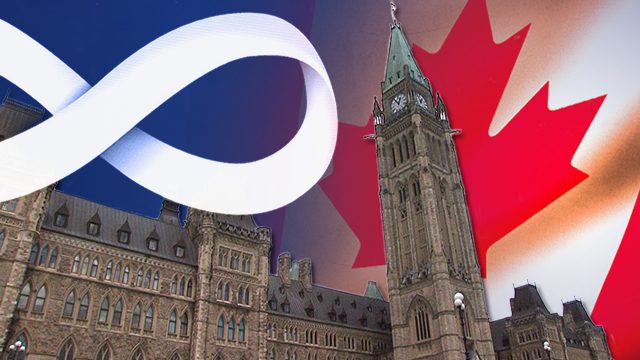
A Federal Court ruling says Ottawa must make changes to a self-government agreement it signed with the Métis Nation of Alberta (MNA).
The ruling, released March 28, says the deal is too broad in its definition of who it covers and it was made without consulting the Fort McKay Métis Nation and the Métis Settlements of Alberta.
Fort McKay and the Métis Settlements are the two landholders in the province.
“The only practical remedy is to quash the offending provisions of the agreement and to remit the matter to the minister for reconsideration,” wrote Judge Sébastien Grammond.
The MNA received the ruling the day before the Easter long weekend and is still reviewing it.
Jason Madden, the MNA’s lawyer, said he welcomed the clarity the ruling provided.
Madden describes the Métis dealings with the federal government as resembling something out of the Peanuts cartoon, he said, where Charlie Brown asks his friend Lucy to hold the football so he can kick it. Lucy pulls the ball away repeatedly.
“We are too far along now and Lucy isn’t going to get us this time,” Madden said of the MNA’s continued move towards self-government.
“The recognition for Métis has been pulled a way in the past and we want to make sure that we get it right,” he said.
“We want to make sure the agreement is clarified to make sure those who are not represented by the MNA are not included in the agreement.”
Andrea Sandmaier, president of the MNA, released a statement about the court ruling.
“Our over 65,000 citizens and our communities will continue to move forward on our vision for self government that we have been advancing for over 200 years,” she said.
“We look forward to continuing our path forward as a Métis Nation, with a government elected by our members, and working diligently for them,” said Contessa Short, director of governance for the nation, in a release.
“And we trust the federal government will now work directly with us, and other Métis communities, in terms of Section 35 representation.”
Read more:
Alberta Métis week capped off with celebration about new constitution
Fort McKay applauded the ruling.
Its lawyer, Jeff Langois, said the federal government ignored earlier attempts by Fort McKay Métis Nation to raise concerns about being included under the umbrella of the MNA.
“There’s lots of Métis communities that do not agree that the MNA is the government for their community,” he said in an interview with APTN.
Fort McKay wants to negotiate its own self-government agreement with Canada.
The judge noted that the Métis settlements and Fort McKay Métis Nation were only given two weeks notice of the impending agreement from Department of Crown-Indigenous Relations.
They both wanted the court to throw out the entire agreement.
The deal was one of three signed by Métis groups in Alberta, Saskatchewan and Ontario in February 2023 that recognized them as Indigenous governments.
“Recognition is the privileged avenue towards reconciliation,” reads the decision by Justice Grammond in acknowledgment of the work that Métis people have done to ensure that they have equal constitutional standing to First Nations.
The self-government agreements give the Métis groups control over who is a Métis citizen, leadership selection and government operations. And it brought them under federal legislation that gives Indigenous governments control over family and child welfare services.
With files from the Canadian Press










